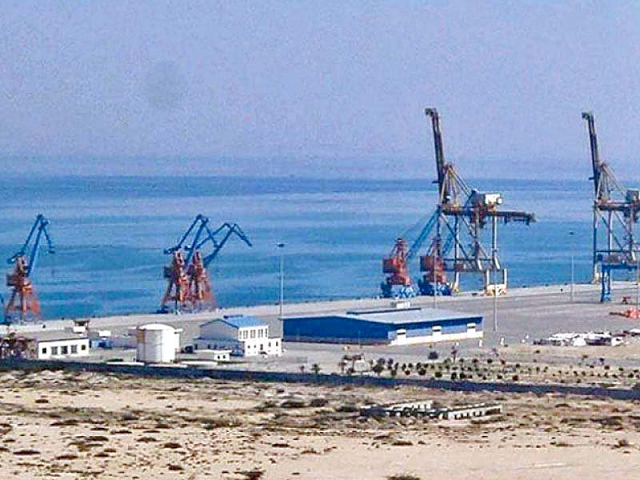Finance minister shocked at lack of progress on SEZs
Issues faced by investors have yet to be addressed; land acquisition process, however, gets under way

SEZs are critical for Pakistan’s second wave of industrialisation as CPEC is so far limited to only a few road and energy projects, which have only addressed the bottlenecks in these areas. PHOTO: FILE
The 55th progress review meeting of CPEC revealed that over the past six weeks things could not move even an inch in relation to developing the SEZs and executing the multibillion-dollar Mainline-I project of the Pakistan Railways.
“There are delays in jump-starting the SEZ project as it is not an easy task,” remarked Akhtar while speaking at a press conference after chairing the CPEC review meeting on Tuesday.
SEZs a remedy for balance of payments woes
Akhtar, who also holds the planning and development portfolio, underlined the urgent need for making progress on the SEZs, which were among key projects of CPEC.
She emphasised that Pakistan remained committed to the strategically important CPEC initiative as so far 22 projects costing $28.6 billion had been under various phases of implementation. Of these, 15 projects valuing at $22 billion are for the energy sector.
The CPEC size has grown to around $60 billion, but there are apprehensions that all projects will not be developed due to various reasons. The caretaker minister did not comment on the question of possible size of CPEC.
Sources in the planning ministry disclosed that during the review meeting, the minister was shocked at the lack of progress on the SEZs. Bureaucracy was the main hurdle in the way of SEZ development, they said.
Barring K-P, provinces refuse to subsidise CPEC’s SEZs
SEZs are critical for Pakistan’s second wave of industrialisation as CPEC is so far limited to only a few road and energy projects, which have only addressed the bottlenecks in these areas.
Responding to a question, the caretaker minister pointed out that issues being faced by investors and developers of the SEZs had yet to be addressed. She, however, said the land acquisition process for the zones was already under way.
According to sources, the minister suggested that the SEZs should be built on the public-private partnership model. However, her idea seemed unlikely to prove feasible as CPEC was executed under a government-to-government sovereign agreement.
The last government also failed to address the challenges in the way of providing incentives to Chinese industries that were expected to relocate to the economic zones.
Except for Khyber-Pakhtunkhwa (K-P), the other three provinces as well as Azad Jammu and Kashmir and Gilgit-Baltistan have refused to finance the incentive package Pakistan has offered for the relocation of dying industries from China.
More open trade may hamper Chinese investment in SEZs
Punjab, Sindh and Balochistan are reluctant to provide subsidised loans and land on concessionary terms to developers of the prioritised SEZs.
Against the planned nine zones, China is interested in developing only two to three zones. The federal government has given priority to Faisalabad (Punjab), Dhabeji (Sindh) and Rashakai (K-P) sites for early development of the zones.
K-P and Punjab governments have taken initial steps, but the Sindh administration has not yet responded.
Akhtar said significant progress had been made on the projects over the past four years. Responding to a question, she clarified that the caretaker government could not take decisions that would have long-term implications for CPEC.
However, the finance ministry was reviewing financing models of CPEC projects and would give recommendations for the next government.
The minister emphasised that the Mainline-I project of Pakistan Railways should be given more importance as it could improve the country’s competitiveness. However, she could not give a date for kick-starting work on the strategically important project, saying its feasibility study was still under consideration.
Progress on the Mainline-I project has halted. The last government had approved in haste the PC-I of the project’s first phase at an estimated cost of $3.4 billion without having a firm cost estimate, sources and cost of financing and the exact route.
Published in The Express Tribune, July 11th, 2018.
Like Business on Facebook, follow @TribuneBiz on Twitter to stay informed and join in the conversation.


















COMMENTS
Comments are moderated and generally will be posted if they are on-topic and not abusive.
For more information, please see our Comments FAQ